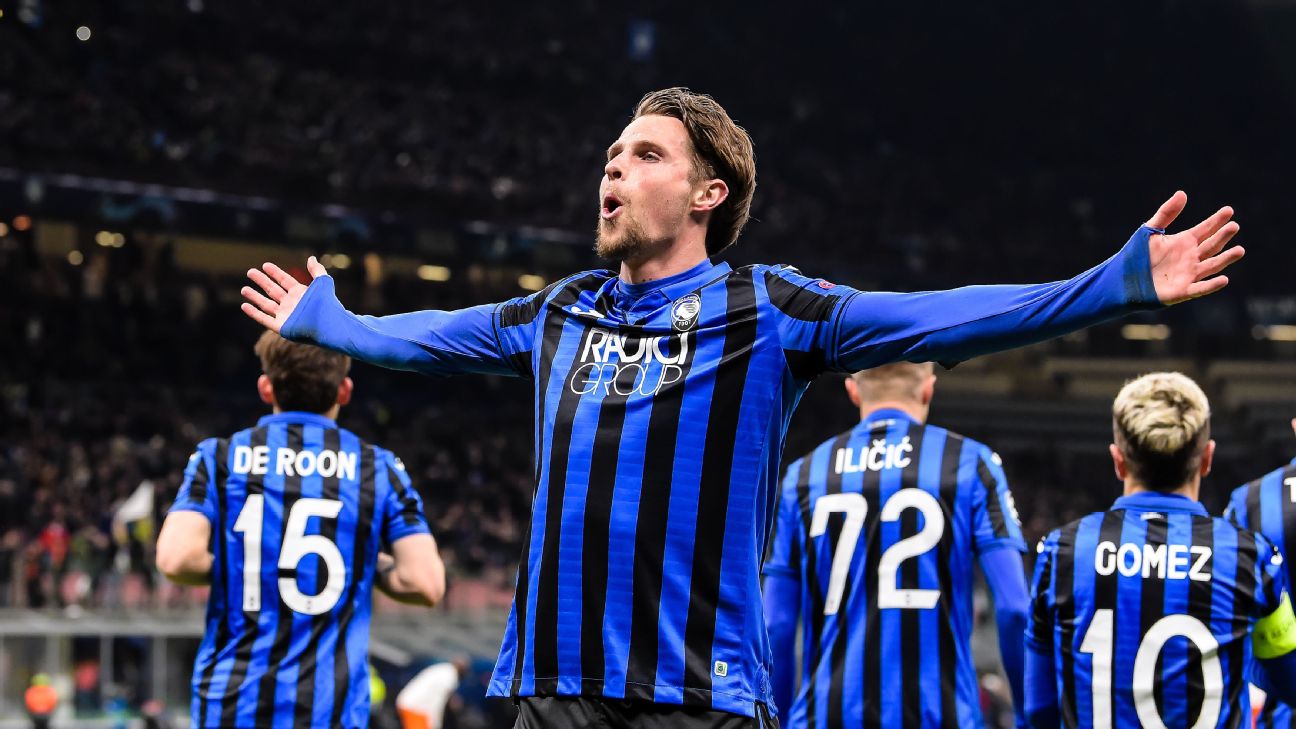Products You May Like
At the end of their sensational and surreal Champions League elimination of Valencia in Spain on March 10, a 4-3 second-leg win (8-4 on aggregate) in an empty stadium Atalanta’s players gathered in front of a TV camera, holding up a T-shirt with a dedication written across the chest. “Bergamo, this is for you,” it read. “Móla mía.”
Written in local dialect, that last phrase translates to “never give up”. It could have been a fitting slogan for soccer’s latest fairytale story. Atalanta, an Italian team from a city of 120,000 people, had just gatecrashed the final eight of Europe’s most prestigious club competition. They had done it in style, too, scoring four goals in each leg of their first-ever Champions League knockout tie.
This was their way: attack, attack, attack. A club whose annual wage bill (around $40 million) would not buy you half of Cristiano Ronaldo was averaging more goals per game in 2019-20 than any other team in Europe’s top-five leagues except Bayern Munich, who spend more than seven times as much on player salaries. And Atalanta truly did embody that “Móla mía” mindset. They had lost their first three games in the group phase by a combined 11-2 scoreline, drew the fourth, then progressed by winning the final two.
Yet the words on that T-shirt were not intended in a self-congratulatory way. The players were sending a message of support to their hometown, as it faced up to a tragedy of unimaginable proportions. One that soccer itself might, unwittingly, have helped to spread.
The city of Bergamo is situated in a province of the same name, with a total population of just over 1.1 million. On March 10, the day of Atalanta’s return game against Valencia, the number of confirmed coronavirus cases in the province rose to 1,472. Across Lombardy, the region containing Bergamo and also Milan, there had already been 468 deaths.
The sense of an accelerating crisis was present before Atalanta flew to Spain. Bergamo was part of a northern quarantine zone established by the Italian prime minister, Giuseppe Conte, on March 8, and the team required special dispensation to travel a day later. The previous weekend’s fixtures in Serie A — including one of the most hotly anticipated showdowns in years between Juventus and Inter — had taken place behind closed doors; their game in Valencia would be too. Even so, reality hit players hard upon their return.
– Marcotti: FIFA’s plan to save the transfer market
– Karlsen: How clubs are staying sharp during shutdown – Stream FC TV on ESPN+ Monday through Friday
Hours after Atalanta departed, Italy’s lockdown was expanded to cover the whole country. By the time they arrived home, the government was drafting tighter restrictions, obliging the vast majority of businesses, besides food stores and pharmacies, to shut down.
“We were happy at first,” recalled the defender Mattia Caldara in an interview with the city’s leading newspaper, L’Eco di Bergamo. “To reach the quarterfinals of the Champions League would have been unimaginable even a few months earlier. But as soon as we touched down in Bergamo, that happiness vanished almost completely.
“To arrive in a semi-deserted airport, when normally there would have been fans waiting for us, and then find the streets empty was a blow to the heart.”
The blows have kept coming. Official figures show that 2,050 people died of COVID-19 in the province of Bergamo in March, but an investigation by L’Eco Di Bergamo found that the true figure was likely twice as high, taking in people who died at home or in care facilities without ever receiving an official diagnosis. In total, more than 5,400 people had lost their lives in the province: six times as many as did in March 2019.
Hospitals have been overwhelmed; so too have coffin-makers and cemeteries. Residents have watched convoys of military vehicles come to collect bodies and take them away to be cremated elsewhere.
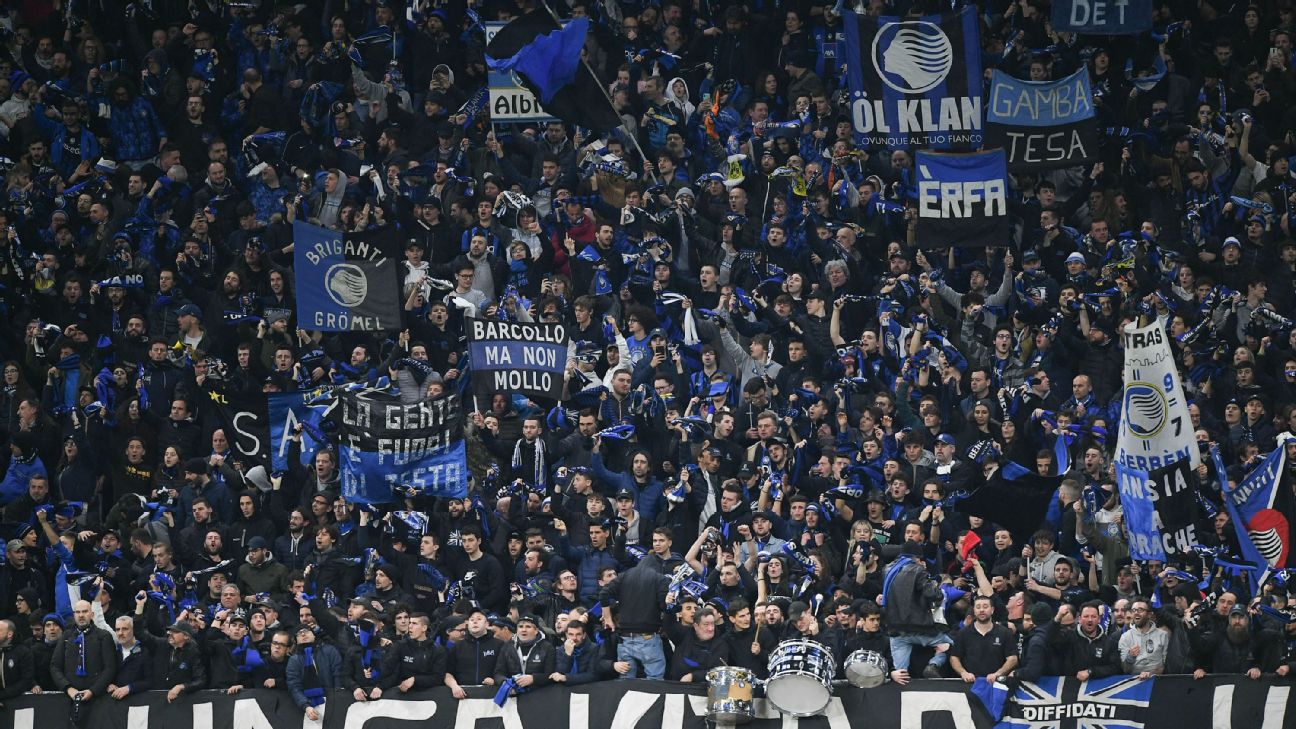
Doctors have died after continued exposure while treating the sick; beloved public figures have passed, too. On Sunday, the former boxer Angelo Rottoli succumbed to the virus at the age of 61. A former European champion, he fought his one world title fight against Carlos De Leon in Bergamo in 1985. He lost, but to the locals he would always remain their very own Muhammad Ali.
Compounding the horror, doctors have now raised a grim possibility: that Atalanta’s nights of European glory might directly have contributed to the virus’s spread. The first leg of that tie against Valencia took place at San Siro, in Milan. Atalanta played all of their Champions League home games at the venue this season, allowing for attendances more than twice as large as would have been possible at their own Stadio Atleti Azzurri d’Italia.
Roughly 40,000 fans made the 35-mile journey from Bergamo to Milan for the Valencia game. Kids were taken out of school, with parents’ mischievous notes to teachers explaining that their offspring needed to participate in a “cultural-historical” moment making international headlines. Just to play in such a game, for a club of Atalanta’s means, was already a cause for celebration.
Fabiano di Marco, chief pneumologist at Bergamo’s largest hospital, fears it was also the start of catastrophe.
“I have heard a lot [of theories for why the virus has spread so aggressively in the region], I’ll say mine,” Di Marco told the newspaper Corriere della Sera. “On Feb. 19, 40,000 Bergamaschi [people from Bergamo] went to San Siro for Atalanta-Valencia. In buses, cars, on trains. A biological bomb, unfortunately.”
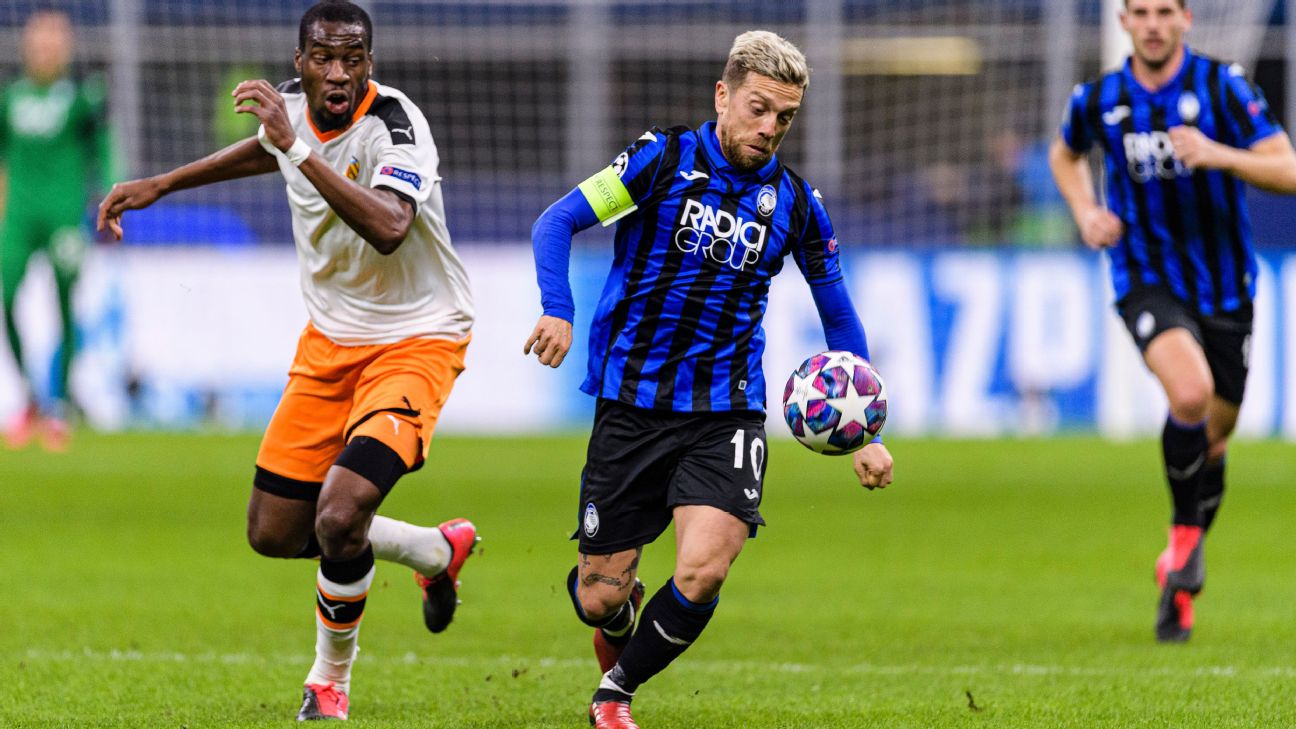
The risks could not easily have been perceived back then, and certainly not by the clubs or players involved. There were only three confirmed coronavirus cases in all of Italy before that first leg was played on Feb. 19. It was only that same day that the wife of a man who had come to hospital with a fever in Codogno, a little less than 40 miles south of Milan, remembered that he had been in contact with a friend who’d recently returned from China. He became the first person diagnosed with the virus in Lombardy. The first case in Bergamo would be reported within a week.
A Spanish journalist who travelled to the game would later become the second person infected in the Valencia region, according to a report by The Associated Press. More than a third of Valencia players would eventually test positive for COVID-19 and as of Friday, Spain has since become the European nation with the highest number of cases, recently surpassing Italy.
For Atalanta’s players, hindsight risks becoming a burden.
“I think it’s all down to that first game against Valencia,” said Alejandro “Papu” Gomez, Atalanta’s captain and charismatic forward, in an interview with the Argentinian newspaper Olé, recalling how it had taken his wife three hours to make what is normally a 40-minute trip to San Siro on account of the vast numbers of traveling fans. He was frustrated by the lack of health checks made ahead of the second leg, at a point in time when more countries were aware of the risks. Although that game took place behind closed doors at the Mestalla, roughly 2,000 Valencia fans still gathered outside before kickoff to welcome their team.
(One night later, Liverpool would host Atlético Madrid before a full-house of 52,000 fans at Anfield. More than 3,000 had travelled from Spain. The decision to allow spectators into the ground drew criticism at the time but appears even more questionable in light of what has happened since.)
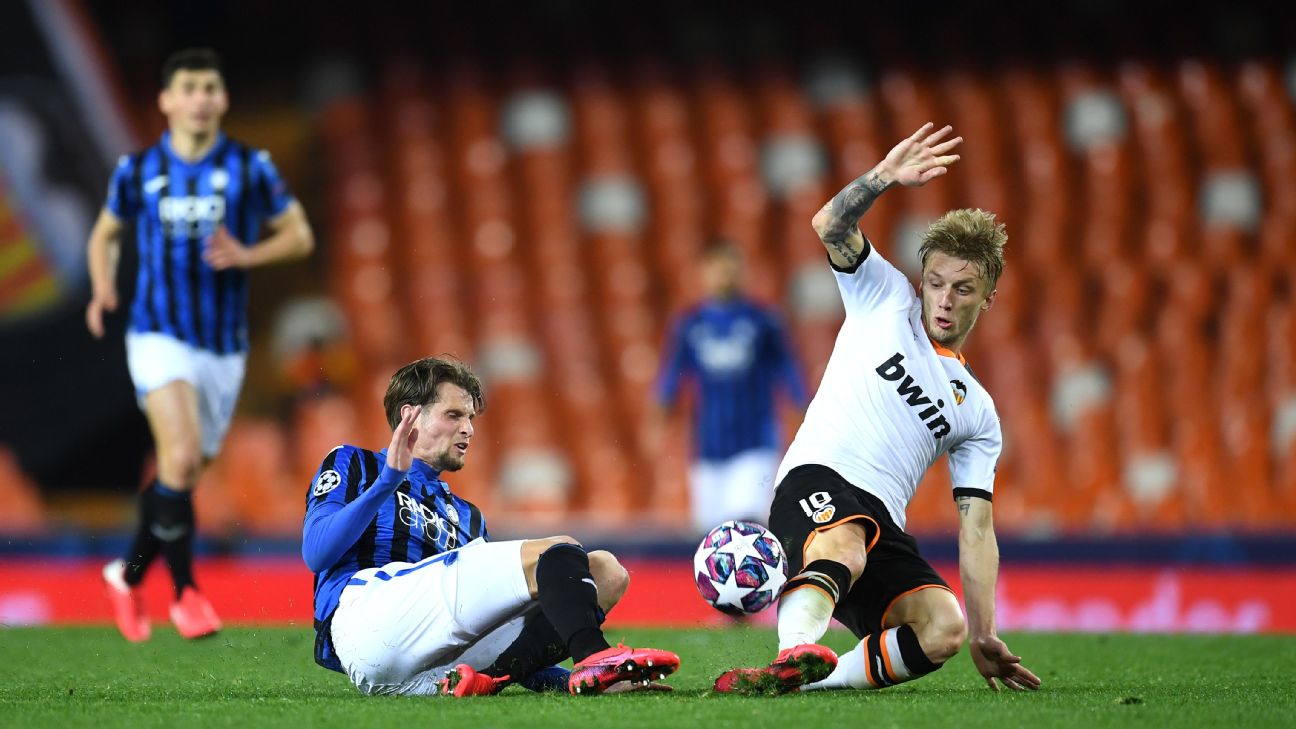
There has been only one confirmed case among Atalanta’s players. Goalkeeper Marco Sportiello is typically a backup but started the second leg against Valencia. He tested positive for COVID-19 on March 20 and, although asymptomatic, had to live in isolation from his family for a time, occupying the ground floor of his home while his wife and 3-year-old daughter stayed upstairs.
A soccer club, though, is more than its players. Atalanta’s president, Antonio Percassi, told the radio station RTL 102.5 on Saturday that “we have had eight cases of people who worked for Atalanta and that has been such a hard and sad thing.” He compared the experience of Bergamo to living through a world war.
The worry that those two games against Valencia contributed to the spread of coronavirus sits in awkward co-existence with the thought that the things they achieved on the pitch might also be a source of cheer to supporters during a bleak time. “Speaking from a footballing perspective, the memory of qualifying remains a happy one, even if today it all appears grey,” said midfielder Marten de Roon. This is a club that shares a close bond with its city, one that has for years sent out a free club shirt to every baby born in the province.
“I hope, with all my heart, that the things Atalanta have conquered recently can give our people a smile,” Percassi said in his interview with RTL 102.5. L’Eco di Bergamo has suspended subscription fees for its soccer blog, Corner, and continues to run posts analysing the team’s recent rise. In a piece on their website last week, Roberto Belingheri explained their decision to carry on talking about soccer, writing that: “We cannot, and do not want to, speak only of this cursed virus.”
– Lowe: How Barca, Atletico are able to cut wages
– Top 10 soccer streams for fans in U.S. (including ESPN+)
– Connelly: How ‘minnows’ manage to compete with PSG, Man City
Gómez, always an active presence on social media, has been posting even more regularly while in lockdown, sharing everything from light-hearted, crafty “life hacks” — repurposing used plastic bottles as organisers for your desk or bathroom — to pick-up soccer games with his kids and examples of his daily workout. For the most part, his tone has remained positive, if often accompanied with reminders to his followers to “stay home.” But one post from his wife Linda, walking through a deserted city, provided a vivid glimpse at how different life looks in Bergamo.
“Today I went out after weeks to get some milk for Milo at the pharmacy,” she wrote. “In Bergamo, we do not sing at 6 p.m. [as people have taken to doing from their balconies in other parts of Italy]. Here, at the moment, there are only two things: silence and ambulances. Before long it will all be back as it was before, or close to that, because this situation has taught us to give value to the things that previously we took for granted.”
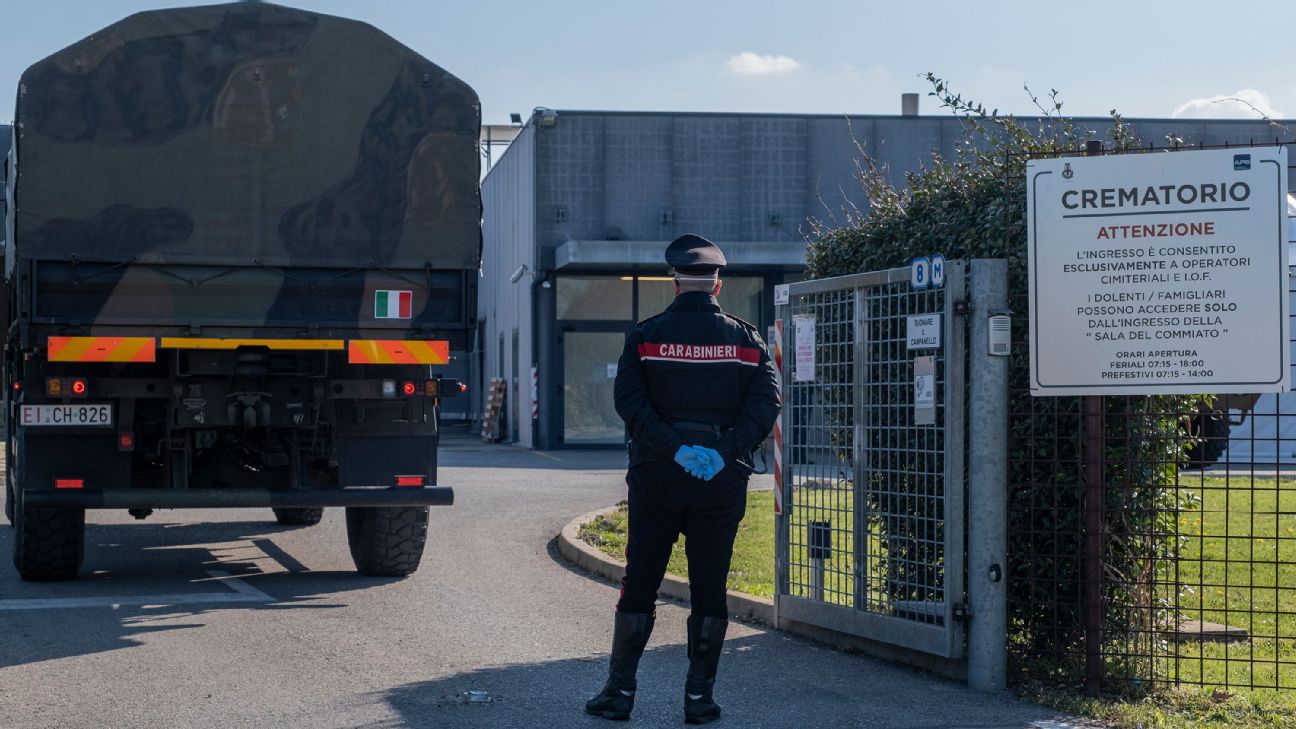
Quite how long that will be remains the great unknown. In the meantime, the lives of professional athletes look the same as those of many other young people: stuck at home, fretting about more vulnerable loved ones and looking for ways to fill the time. Atalanta’s players have a WhatsApp group and catch up regularly via video chat on Zoom. Some play video games. Wing-back Hans Hateboer represented the club in the Ultimate QuaranTeam Fifa tournament, losing to professional gamer Renzo Oemrawsingh.
Nobody at Atalanta is kidding themselves as to their own importance. Asked by Gazzetta dello Sport what role soccer players could fill right now, De Roon replied bluntly: “A marginal one. The real protagonists are the doctors.”
Still, soccer has its place, as the former Milan manager Arrigo Sacchi once described it: “the most important of the least important things.” De Roon was candid in acknowledging his personal sadness at the postponement of Euro 2020 at a time when he had established himself at last as a fixed part of the Netherlands’ national team, even as he acknowledged that it was the only possible decision.
“Happiness is not something we can take for granted, everything can change in an instant,” he reflected. “We need to enjoy every second of life.”
It was, at its core, the same sentiment that he and his Atalanta teammates had shared at the end of their win in Valencia.
“Móla mía.” Keep going. Don’t give up.
